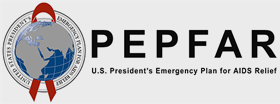HIV/AIDS (Task Order 1) | Technical Assistance | Commodity Procurement
Malaria (Task Order 2) Technical Assistance | Commodity Procurement
Reproductive Health and Population (Task Order 3) | Technical Assistance | Commodity Procurement
Maternal and Child Health (Task Order 4) | Technical Assistance


